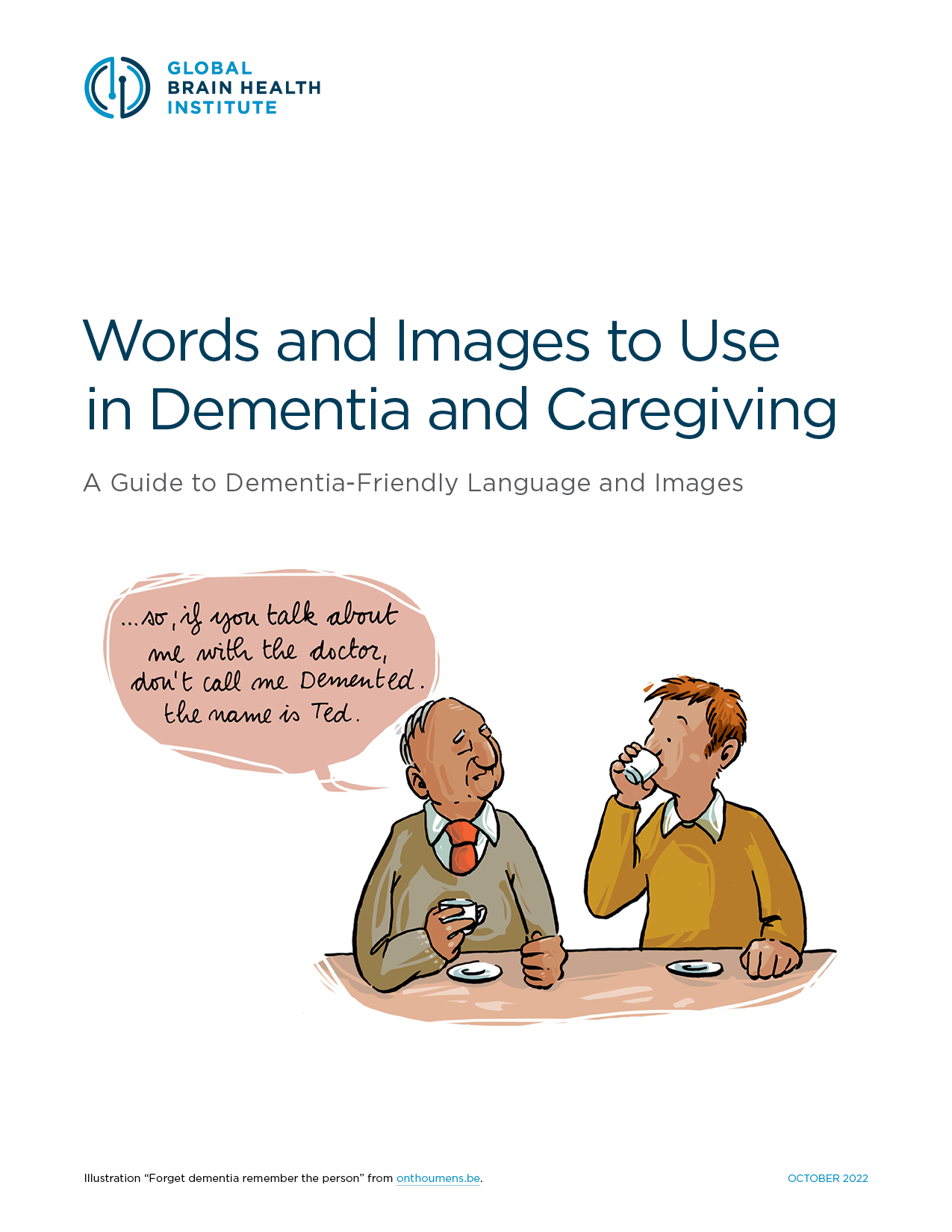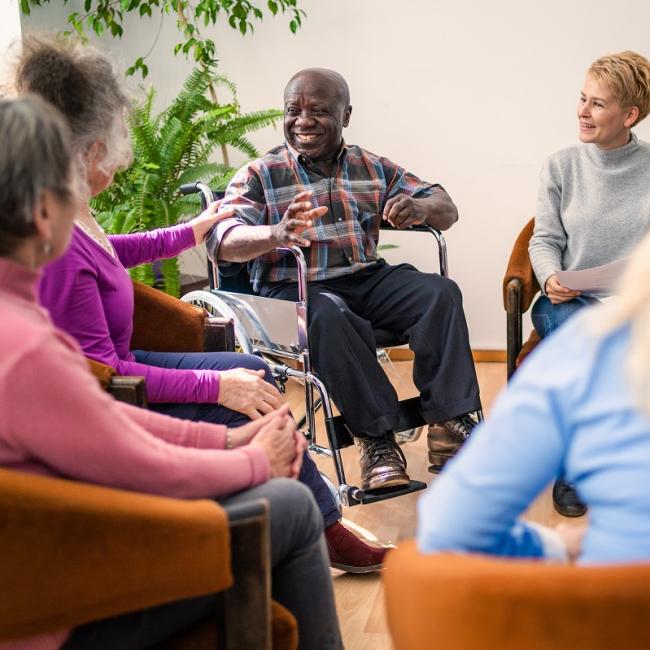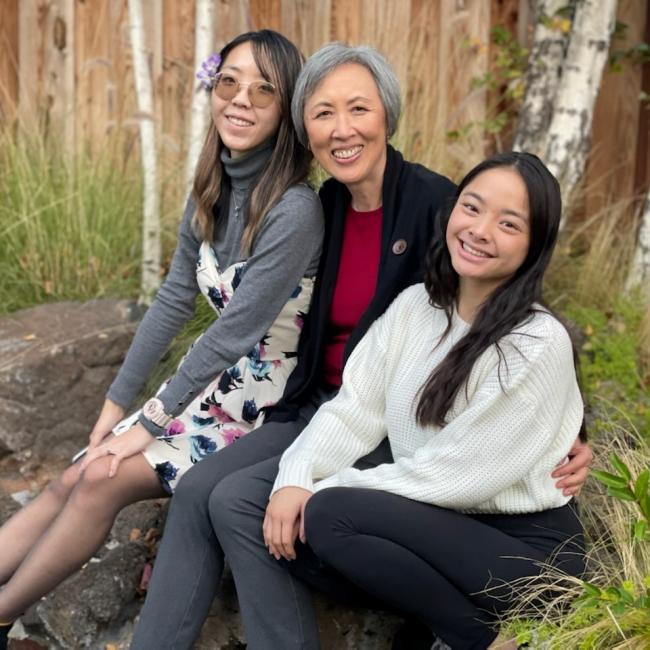A Guide for Dementia-Friendly Language and Images

Words and images are powerful. They can influence how others treat or view people with dementia. For example, depicting people with dementia as sufferers or victims may imply that they are helpless and reinforce inaccurate stereotypes.
Inspired by a need to improve how we communicate about people living with dementia, “Words and Images to Use in Dementia and Caregiving” is a guide to dementia-friendly language and images intended to promote the use of inclusive and non-stigmatizing language. It was developed by the Dementia Community Research Advisory Panel (DC-RAP) at Global Brain Health Institute (GBHI), a group of volunteers representing people living with dementia, family caregivers, and people at varying risk of dementia who provide their voice and experiences in the development of programs and research targeting aging and dementia.
“Language and images are essential to make a person feel valued, supported, and seen,'' says Abhisweta Bhattacharjee, Project Coordinator at GBHI and a co-facilitator of the advisory panel. “They can create mutual respect and foster engagement when devoid of hidden stigma or even ‘over-optimism’ that may dull the essence of an actual lived experience.”
The guide includes general guidelines for dementia-friendly language and images, such as suggestions for terminology and slide presentations, at the same time acknowledging differences in regional and cultural acceptability of language.
“We hope the guide will help to create a common language around dementia and caregiving to improve outcomes for everyone, keeping in mind that language and attitudes evolve and change in use and meaning,” said Jennifer Merrilees, a clinical nurse specialist at the UCSF Memory and Aging Center and advisor of DC-RAP.
“Words and Images to Use in Dementia and Caregiving” is available to view or download here. Learn more about the Dementia Community Research Advisory Panel and the Person and Public Voice Program at GBHI.




